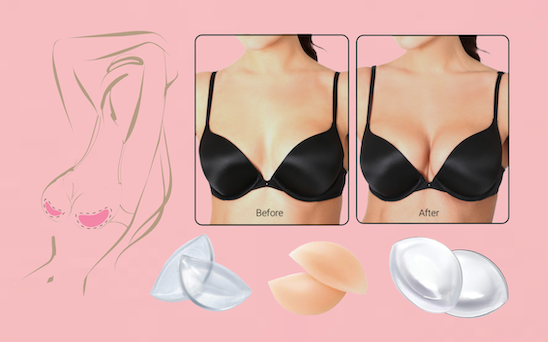
What Is A Keto Diet?
The keto diet was originally designed to help children with epilepsy back in the 1920s. Doctors found that children were having less seizures when they were put on a keto diet.
The guidelines for a keto diet is to consume 70-80% of your daily caloric intake from fat, 5% carbohydrates and the rest is protein. (The keto diet correctly done is not a high protein diet)
A keto diet relies on the state of ketosis, which is normally a starvation state. Though it is encouraged to eat enough calories, so you’re only mimicking starvation. In this state, your body doesn’t have enough sugar to run itself. So it converts fat into ketones which can fuel most of your body. Except for your brain: ketones can only fuel two thirds of it, the rest must be glucose.
Even with its appealing food recommendations and promises of weight loss, there are pros and cons you need to consider before doing the keto diet.
1) A Whole Foods Approach
Most keto experts encourage dieters to eat more whole foods, the best advice is to try to eat up to 7-10 cups of veggies per day. As well as staying away from processed carbohydrates and alcohol. Some experts even advise to go dairy free. Which are great suggestions no matter what diet you adhere to.
2) The Keto Diet Works For Some
There are a couple of circumstances in which a keto diet could potentially be helpful. The first is childhood epilepsy which is mentioned above regarding how the keto diet first came about. A percentage of children who’ve experienced epilepsy have been shown to recover from epilepsy by consuming a keto diet. The other group is cancer patients. Studies have shown advanced cancer patients sometimes benefit from a keto diet.
The reason why it’s not recommended to do keto unless you fit into those particular criteria (childhood epilepsy/cancer) is that there are major side effects. One is persistent and constant dehydration, which could be a problem for your skin – if you want your skin to be healthy and glowy, hydration is key. The second common problem is digestion problems as well as lowered immune system.
3) Keto And Weight loss
There are no doubt weight loss stories from people doing the keto diet. As the diet suppresses the appetite enough to cause significant caloric deficit. Though what is it are they really losing? A study showed that the keto diet actually stalled fat loss and increased lean mass loss. Which means the fat stayed and muscles, bones and organs went. Which is crucial to keep in mind, as most of us weigh ourselves constantly as a measure of our weight loss success. And we think the diet works when we’ve drop a few kilos in a week. You need to be aware that those kilos you’ve lost so quickly is not fat, as healthy fat loss takes time. It’s mostly water we’re losing (for low carb diets like keto, it depletes stored glycogen – which binds large amounts of water).
With any diet that recommends caloric restriction, weight rebounding is highly likely. Your body has a basal metabolic rate which is the minimum energy it needs everyday to perform its basic function. If you’re restricting your calories, you’re eating less than what your body needs to function. Your body is going to hold on to every single morsel of food you eat, especially after we throw the towel in and binge.
The main cause of weight loss on a ketogenic diet is caloric restriction and studies found without the caloric restriction, it is proved to be ineffective. Like any other caloric restriction diet plan, it’s unsustainable to do long term.
4) Nutrient & Fibre Deficiency
Additionally, by restricting our calories, and eating primarily fat as our main source of calories, we miss out on important nutrients, minerals and fibre. If we’re eating a keto diet, we’re abstaining from healthy whole food carbohydrates, which provides fibre and prebiotic. Prebiotic is as crucial to our gut health as probiotic, think of it like food for our beneficial gut bacteria.
If you want to restore your gut and ensure you have a healthy gut bacteria flora, you need to ensure you’re eating a variety of whole plant foods. The fermentation of the fibre (which is only found in whole plant foods) creates more SCFAs = short chain fatty acids. This affects the whole body positively, for example it shuts down leaky gut by improving our gut barrier function. Inhibits unhealthy bacteria and it also creates an acidic colonic environment, which we want because the alkaline state (the keto diet creates a very alkaline pH in the colon) allows some opportunistic pathogens to flourish and leads to inflammation.
5) Beauty Side Effects
The keto diet have been shown to raise cortisol – our stress hormone – which is induced because our body thinks it’s starving. This plays into fat storage and the fat accumulation is usually around our mid section.
Not only that, but our skin takes a toll too. Our skin is a direct reflection of our inner ecology. When we’re blocked up and our liver is compromised (which is a side effect of a keto diet) it manifests as acne and other skin issues. Without adequate fibre to nourish our healthy gut bacteria, and push things through, it is common to experience break outs.
Other beauty related side effects of a keto diet includes dark circles (which have been reported due to eating a keto/low carbohydrate diet) and keto breath is a thing.
6) Say Goodbye To Eating Out With Friends
As ketosis is pretty hard to maintain (it’s easy to slip up and it takes days to get back into ketosis), it’s difficult to eat out at restaurants, as we can’t possibly know exactly what’s in our food. Time and time again, people have told me the reason they quit the keto diet is because it’s difficult to maintain and socialise with friends.
So there you have it. Does the keto diet work? Sure, some people have had short term results but potentially at the cost of long term health. There hasn’t been any studies that show long term benefits from eating a keto diet. On the plus side, the benefits of keto diet is that it recommends a more whole foods approach and it is encouraged to eat a lot of vegetables. However, by doing a quick search online, it’s not hard to find a long list of potential keto side effects. The main concerns are blood sugar, kidney, adrenals, bone, gut, cholesterol related.
All in all, it depends on what you’re using the keto diet for. If it’s for managing epilepsy then perhaps it could help (please consult a nutritionist for proper support). But if it’s for weight loss, there are more sustainable options out there.
Vanessa is a Wellness advisor, a certified Naturopath and Naturopathic Nutritionist. Find Vanessa at @spaceofwell or on spaceofwell.com.


